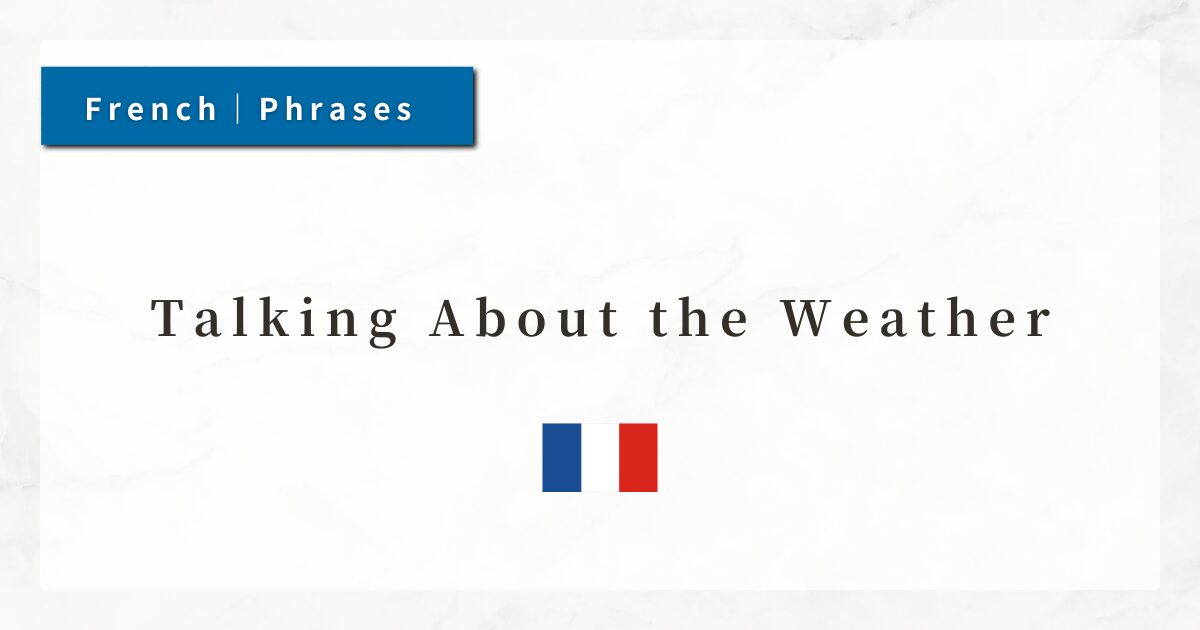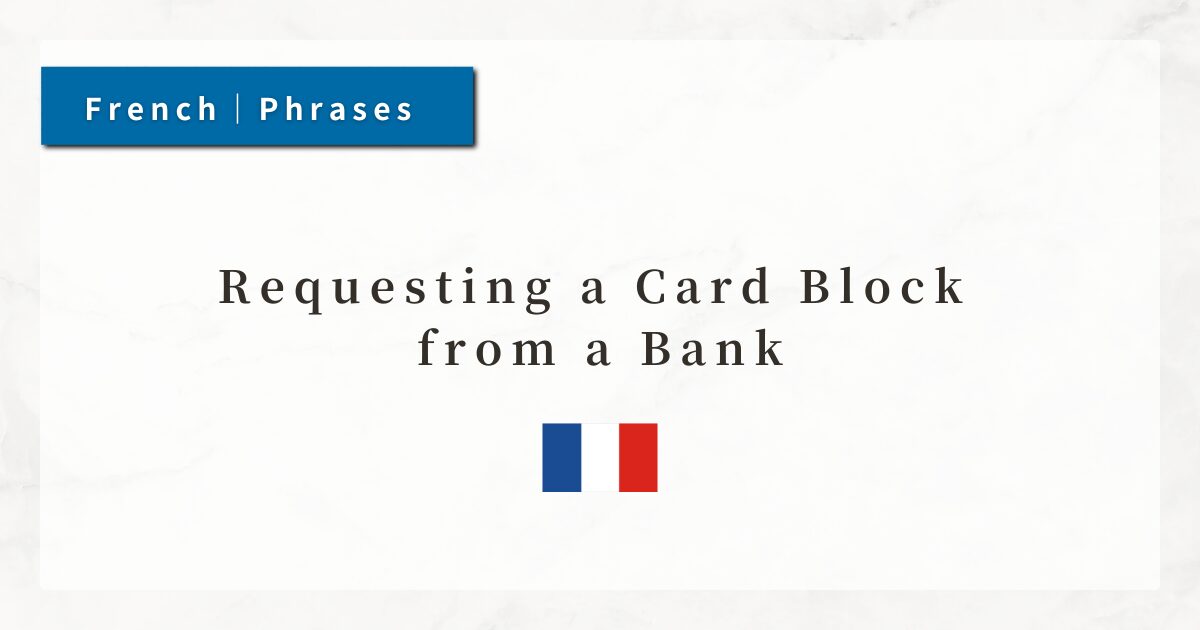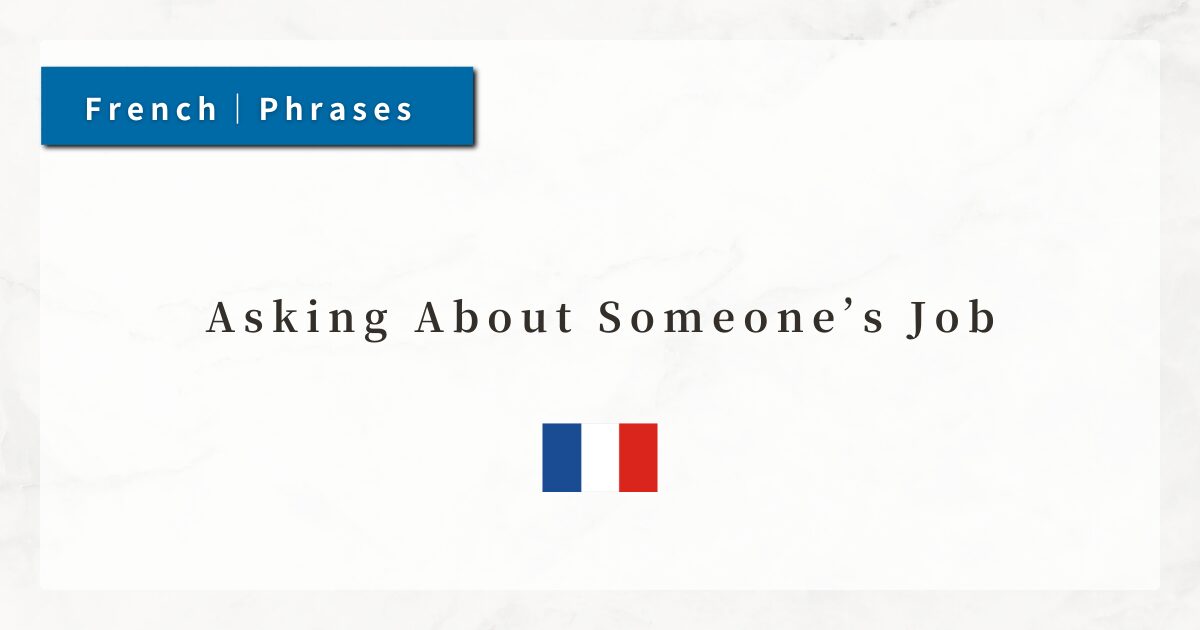#38 Talking About the Weather|Everyday French Conversation

In everyday conversation, the weather is a very common topic and often serves as an icebreaker.
In French, there are several ways to talk about the weather. It is important to distinguish between fixed expressions with “Il fait …” and verb-based expressions such as “Il pleut / Il neige.”
Here, I will explain how to use French weather expressions and highlight the key grammar points.
Dialogue

Bonjour ! Quel temps fait-il aujourd’hui ?
(Hello! What’s the weather like today?)

Il fait beau et chaud.
(It’s nice and warm.)

Super ! Et demain, il va pleuvoir ?
(Great! And tomorrow, will it rain?)

Oui, d’après la météo, il va pleuvoir l’après-midi.
(Yes, according to the weather forecast, it will rain in the afternoon.)

Ah, merci pour l’information !
(Oh, thanks for the information!)
1. Asking About the Weather
The standard phrase to ask about the weather is:
- Quel temps fait-il ?
(What’s the weather like?)
Literally translated, it means “What weather is it making?”, a uniquely French phrasing. The subject must always be the impersonal “il ” (third person singular).
Adding time expressions makes the question more specific:
- aujourd’hui
(today) - demain
(tomorrow) - en ce moment
(right now)
2. Describing Weather with “Il fait …”
To describe general weather conditions, French uses the structure “Il fait + adjective”:
- Il fait beau.
(It’s nice.) - Il fait chaud.
(It’s hot.) - Il fait froid.
(It’s cold.) - Il fait mauvais.
(The weather is bad.)
Here, the subject “il ” does not refer to a person but to the weather.
The verb “faire” normally means “to do/make,” but in this construction it is a fixed expression meaning “the weather is ….”
- “beau” describes sunny, pleasant weather.
- “mauvais” refers broadly to unpleasant conditions such as clouds, rain, or wind.
3. Weather Phenomena Expressed with Verbs
To describe specific weather phenomena, French uses dedicated verbs:
- Il pleut.
(It’s raining.) - Il neige.
(It’s snowing.)
As with other weather expressions, the subject is impersonal “il”.
The verbs “pleuvoir” (to rain) and “neiger” (to snow) are used only in the third person singular form.
4. Talking About Future Weather
To discuss weather forecasts, French often uses the near future construction “aller + infinitive”:
- Il va pleuvoir demain.
(It’s going to rain tomorrow.) - Il va faire beau ce week-end.
(It’s going to be nice this weekend.)
This structure expresses events that are expected to happen soon, and it is frequently used in weather forecasts.
5. Expressions with “la météo” (Weather Forecast)
The word la météo (short for météorologie) commonly appears in weather-related conversations:
- D’après la météo, il va faire chaud demain.
(According to the weather forecast, it will be hot tomorrow.) - Tu as regardé la météo ?
(Did you watch the weather forecast?)
The phrase “d’après …” means “according to …,” and is very useful when talking about information sources.
Summary
- Quel temps fait-il ?
→ the standard way to ask “What’s the weather like?” - Il fait …
→ expresses general weather conditions (beau, chaud, froid, mauvais). - Il pleut / Il neige
→ verbs for specific weather phenomena. - Il va + verb
→ used to describe future weather and forecasts. - la météo
→ “the weather forecast,” a key word especially useful when traveling.




